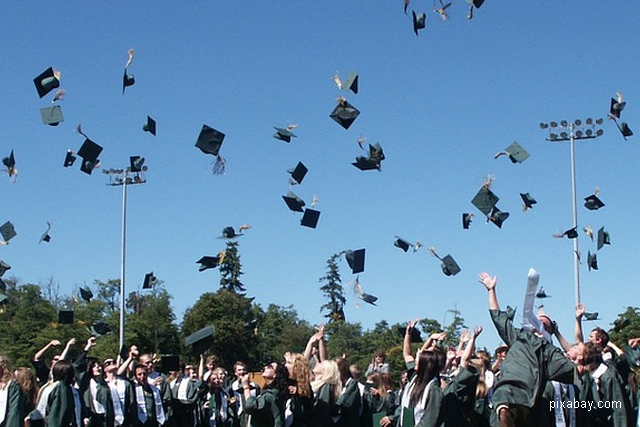Young Romanian’s dream jobs
Most young people in Romania want to work in IT, according to a recent study.

România Internațional, 21.08.2019, 12:42
Romanian high school students are savvy about connecting to the world, aware that the digital revolution will change the world, and that new jobs will emerge over the next decades due to new technology and economic evolutions, jobs for which they will have to prepare and train. According to a poll run by INACO – the Initiative for Competitiveness, as part of the Guide to Future Jobs project, most students want to work in information technology, according to association president Andreea Paul:
“Two out of three students believe that the jobs of the future are in computers and robotics, artificial intelligence, and 3D printing. This is what Romanian youth dream about. Of course, the Future Jobs Guide opened them up to new opportunities, helped them understand the impact on the labour market of new 4.0 technologies. It helped them understand that they apply to all areas, from art to medicine. Students understood that their life will be easier, they will work smarter, more creatively, that they need new skills in the future labour market. What I think will be surprising in this poll, in addition to IT and medicine, which seem to be very attractive for young people, is the fact that many young people seem to be attracted to jobs in the police and the army. Here, percentages are twice those of students who say they would want to work in education. This poll revealed they want some more exotic jobs too, such as drone pilot and space miner. I think this is inspired by the Future Jobs Fair, but what is certain is that they gave us a clear signal that education today is blind to the needs of the future labour market.”
Experts with the INACO Association believe that Romania is completely unprepared for the future, in terms of education. Through the Future Jobs Guide, launched last year in autumn, the INACO community of professionals wants to show young people how the world will change over the next few years, in which areas new jobs will emerge, and the best predictions about the economy and the labour market. Already, a few schools have been endowed with new technology, and the project continues, Andreea Paul told us:
“We are at an advanced stage in our talks with the Bucharest School Inspectorate in order to set up the first 4.0 smart labs in Bucharest. We are thinking to set up such units this year in 18 schools, even in Constanta and Calarasi. A SMART LAB 4.0 has to have 6 3D printers, a 3D scanner, two multifunctional educational robots, virtual reality units, with their software, and the consumables needed for the first year of functioning, as well as the maintenance for the first year. However, what is essential is the training of teachers, and we figured about three teachers are needed for each educational institution involved in the program. The second step, which this time has to be made by the Ministry of Education, is to have it create as quickly as possible a Working Group for Future Education. This would allow us next year to talk about a national program to furnish schools with the new technologies. Smart Labs 4.0 are as important today as the classical physics, chemistry, IT, geography or biology that we are used to in Romanian schools.”
Marian Stas, an education expert, also believes that the Romanian educational system has to be changed in order to create a more attractive kind of school, where students would be motivated and passionate about what they learn:
“School is like a car running with its parking break on, it is highly inadequate for the real needs of society and of individual children. Here I am referring to two distinct dimensions: higher education and pre-university education. Maybe higher education is a bit more focused, even though I have my reservation about it too, but pre-university education definitely has nothing to do with the childrens real needs for development. It is in fact a trade union designed educational system, stuck in the previous paradigm, the communist paradigm, with no relationship with the authentic, real needs of society and young people going forward. Right now, pre-university education is designed so that teachers have their teaching loads and salaries, not with the kids in mind. This is why we have this craziness with 15, 16 or 18 subjects per semester, hence the craziness with paid tutoring with children we teach, hence the craziness with the national evaluation in 8th grade, which is actually just a formality, without substance, because activities are trivial, hence it yields no credible results.”
In Romania, only 3% of students attend educational Olympiads, 42% of them dont understand what they read, and the drop-out rate is some of the highest in the EU. For the time being, the new minister of education, appointed for the fourth time in this position, wants to continue reforms with a new law of education. There is talk about giving up on single textbooks, and a transition to a differentiated baccalaureate, or stage exams.






























